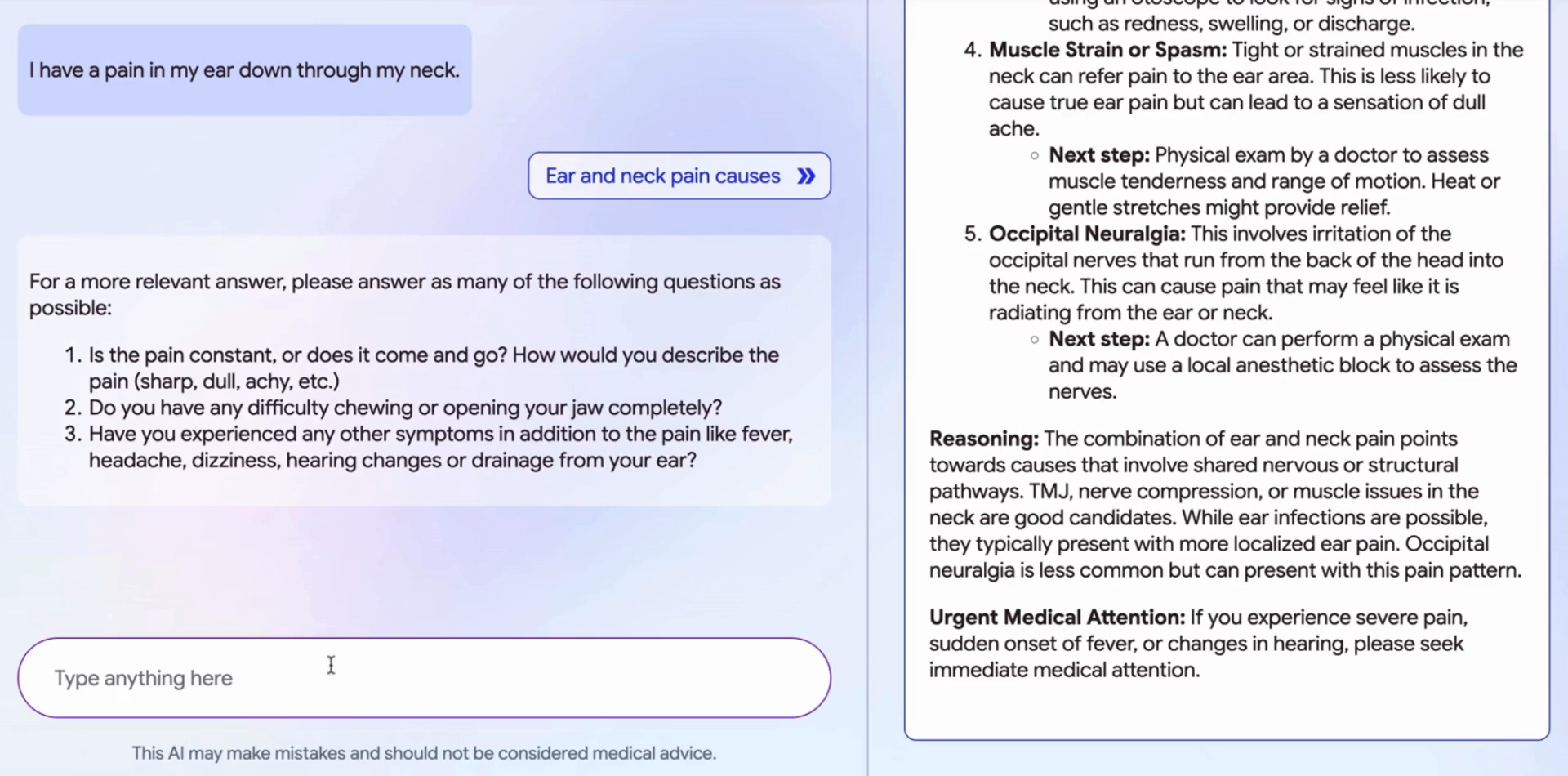For many, searching for health information online can feel overwhelming and impersonal. Generic answers often leave users frustrated and unsupported. Recognizing this gap, Google Research developed Wayfinding AI, powered by Gemini, to make digital health conversations more personal, interactive, and effective. This agent doesn’t just respond with information; it proactively asks clarifying questions, attempting to mimic the thoughtful approach of healthcare professionals.
Why Standard Health AI Falls Short
Researchers found that people often struggle to describe their health issues in enough detail for traditional AI to help. Many users “throw all the words in there,” hoping for a useful response, but receive generic, one-size-fits-all answers. The lack of interactive, context-seeking dialogue makes these solutions feel impersonal and less helpful than a real conversation.
Most participants preferred an approach where the AI first asks targeted questions before offering advice. This “deferred-answer” style made users feel understood and increased their confidence in the AI’s recommendations. However, the quality of these questions is critical, a poorly timed or vague query quickly erodes trust and engagement.
Wayfinding AI’s Human-Centered Design
Armed with user insights, Google built Wayfinding AI around three core principles:
- Proactive conversational guidance: The AI asks up to three focused questions per turn, seeking to clarify needs and reduce ambiguity.
- Best-effort answers at every step: It delivers the most accurate answer possible with current information, while signaling that better responses are possible with more details.
- Transparent reasoning: Wayfinding AI explains how each new detail affects its answers, giving users insight into its reasoning process.
The interface features two columns: one for the conversation and clarifying questions, the other for detailed, evolving answers. This setup keeps users engaged and ensures they don’t miss important prompts or information.
Testing the Approach: Real User Feedback
To assess effectiveness, 130 participants with diverse health questions tried both Wayfinding AI and a standard Gemini-powered AI. They rated their experiences across helpfulness, relevance, personalization, understanding, ease of use, and efficiency.
The verdict? Wayfinding AI outperformed traditional models on nearly every front. Users found it more helpful, relevant, and tailored to their needs. Its proactive questions led to deeper, more meaningful conversations, especially for those with complex or unclear symptoms. On average, users spent more “turns” interacting, showing greater engagement and satisfaction.
The Future of Empowered Health Guidance
This research highlights a turning point for digital health support. Rather than acting as a static answer machine, AI can become a collaborative partner helping users articulate their health stories and receive guidance that’s both actionable and personal. Wayfinding AI’s blend of active engagement, transparency, and user-centric design points to a promising future for healthcare technology.
Conclusion
AI’s role in health information is shifting from passive provider to active collaborator. Google’s Wayfinding AI shows how proactive dialogue and thoughtful design can help people navigate health challenges with greater confidence and clarity. As this model evolves, it could redefine the standard for trustworthy, user-focused health assistance.


Google's Wayfinding AI Is Transforming Health Conversations